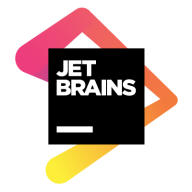

Chef and TeamCity are competing products in the realm of automation tools. Chef seems to have the upper hand in configuration management, while TeamCity offers a competitive edge with its continuous integration and deployment capabilities.
Features: Chef provides flexible automation scripts for efficient infrastructure management, supporting various platforms and seamless cloud service integration. TeamCity is renowned for its powerful build management, allowing parallel builds and integration with different version control systems. It excels in pre-tested commit features, enhancing continuous delivery pipelines.
Room for Improvement: Chef could improve its user-friendliness for beginners and simplify its deployment model. Enhancements in its rollback capabilities and GUI might benefit users. TeamCity could focus on refining its cost structure and provide more intuitive user interfaces. Expanding support for additional third-party tools and broader platform compatibility could enhance its offering.
Ease of Deployment and Customer Service: Chef emphasizes extensive customization but can be complex for newcomers. Their customer service assists with troubleshooting but requires more setup knowledge. TeamCity offers a smoother initial setup with intuitive configuration options, and its responsive support services make adoption simpler.
Pricing and ROI: Chef involves an upfront setup investment, but its open-source nature aids in lowering long-term costs, fitting specific budget models. TeamCity might have a higher initial cost due to licensing, but its efficient workflow and integrations provide notable ROI for development teams.


Chef, is the leader in DevOps, driving collaboration through code to automate infrastructure, security, compliance and applications. Chef provides a single path to production making it faster and safer to add value to applications and meet the demands of the customer. Deployed broadly in production by the Global 5000 and used by more than half of the Fortune 500, Chef develops 100 percent of its software as open source under the Apache 2.0 license with no restrictions on its use. Chef Enterprise Automation Stack™, a commercial distribution, is developed solely from that open source code and unifies security, compliance, infrastructure and application automation with observability. Chef provides an unequaled developer experience for the Coded Enterprise by enabling users to express infrastructure, security policies and the application lifecycle as code, modernizing development, packaging and delivery of any application to any platform. For more information, visit http://chef.io and follow @chef.
TeamCity is a Continuous Integration and Deployment server that provides out-of-the-box continuous unit testing, code quality analysis, and early reporting on build problems. A simple installation process lets you deploy TeamCity and start improving your release management practices in a matter of minutes. TeamCity supports Java, .NET and Ruby development and integrates perfectly with major IDEs, version control systems, and issue tracking systems.
We monitor all Build Automation reviews to prevent fraudulent reviews and keep review quality high. We do not post reviews by company employees or direct competitors. We validate each review for authenticity via cross-reference with LinkedIn, and personal follow-up with the reviewer when necessary.